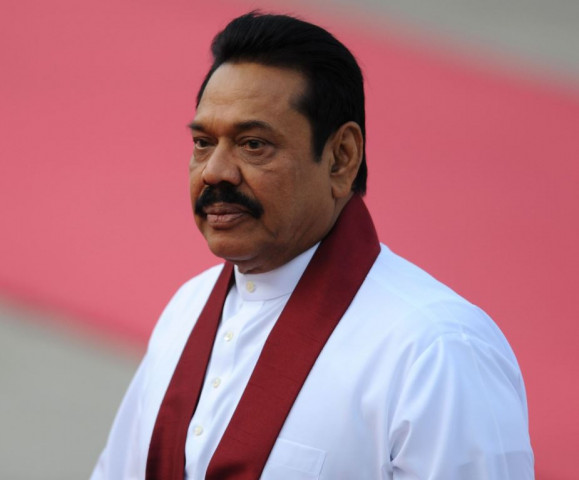Sri Lanka president gets court nod for re-election bid
Rajapakse removed the two-term limit on the presidency soon after winning re-election in 2010

Irrigation Minister Nimal Siripala de Silva told Parliament the Supreme Court has ruled that Rajapakse is allowed to call a snap election, which is widely expected in early January.
"The Supreme Court has unanimously held that there is no legal impediment for the president to call an election," de Silva said.
Rajapakse removed the two-term limit on the presidency soon after winning re-election in 2010. However, opponents argue the amended constitution only applied to new presidents and cannot be used retroactively.
Official sources said Rajapakse is hoping to formally announce his re-election bid after completing four years of his current six-year term on November 19, a day after his 69th birthday.
He won popularity among Sri Lanka's majority Sinhalese community in 2009 by crushing Tamil rebels who had waged a 37-year war for a separate homeland for their ethnic minority.
As well as removing the term limit, he tightened his grip on power by sacking the chief justice last year. He replaced her with his former attorney general and legal adviser, with powers to interpret the constitution.
Rajapakse's party's vote share plummeted at local elections in September, suffering its worst performance since Rajapakse first came to power in 2005.
A party of Buddhist monks, which is part of Rajapakse's ruling coalition, has warned it will work to defeat the president if he fails to restore the independence of the public service, police, judiciary and the elections commission before the poll.
The party is organising a rally in Colombo on Wednesday to press for constitutional reforms and to revert the country to a Westminster-style parliamentary democracy, that ended in 1978, a demand also made by a majority of opposition parties.



















COMMENTS
Comments are moderated and generally will be posted if they are on-topic and not abusive.
For more information, please see our Comments FAQ